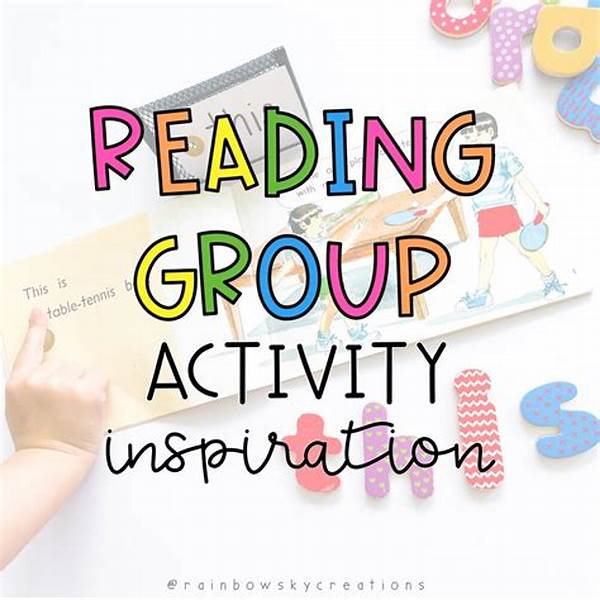Once upon a time, in a vibrant neighborhood teeming with the laughter and playful shrieks of children, a curious little girl named Lily was discovering her world. Every morning, the aroma of freshly brewed coffee danced through the air as her dad flipped through the pages of the morning newspaper, while her mom hummed her favorite song in the kitchen. Lily, with eyes sparkling with curiosity, often wondered about the stories her father read and the tales behind the hums of her mother. Little did she know, these daily rituals played a pivotal role in shaping her love for language.
Read Now : Toddler-friendly Language Development Stories
Parents as First Teachers
In the grander scheme of language learning, parents are like the unsung heroes, the quiet backstage crew ensuring the show runs smoothly. They are the kid’s first teachers, whether they signed up for the job or not. Every bedtime story, every silly rhyme, every kitchen sing-along are invaluable lessons. The role of parents in language learning isn’t just about grammar drills or vocabulary lists. It’s about creating an environment where language flourishes naturally. This process is not formal or structured, and for the love of all things wholesome, it’s way more fun!
Parents hold the magical wand that transforms everyday moments into learning opportunities. When a child hears a story from their parent, it’s not just words they receive but tones, emotions, and expressions. These elements are vital in grasping the nuances of language. Now, who wouldn’t want that magical nurturing to kickstart the language experience?
Kids learn more from what parents do than what they say. So when mom chats happily with the mailman or dad discusses the weather, they’re modeling language acquisition. The role of parents in language learning is also about showing kids that language isn’t just a subject to study, but a vibrant, living thing.
Building Blocks of Language Learning
1. Story Time Is Prime Time: Storytime ain’t just about fairy tales. It’s a bonding session that enhances vocabulary while cuddling with your mini-me.
2. Chit-Chatting: Those everyday convos, no matter how trivial, are a goldmine for language development. The role of parents in language learning can be as simple as asking about their day.
3. Songs And Rhymes: Singing silly songs in the car or playing funky nursery rhymes in the backyard makes language vibrant and fun.
4. Read Aloud: Seriously, hearing words aloud makes ‘em stick like peanut butter to the roof of your mouth.
5. Interactive Play: Through play with parents, kids are introduced to new words and contexts, making language more tangible.
Parents as Language Coaches
Parents naturally slip into the role of being their child’s coach in the vast field of language. By frequently using their native tongue or even introducing another language, they become instrumental in building their child’s linguistic foundation. The role of parents in language learning, therefore, is reminiscent of a coaching experience. They set the stage and guide the young ones through the intricate dance of language.
When parents converse with their kids, they are crafting more than dialogues; they are nurturing confidence and fluency. Language becomes the canvas on which familial bonds are strengthened. Through the giggles, whispers, and even the stern talks, language organically weaves its tapestry in a child’s heart and mind. Let’s be honest, the more colorful the language essence at home, the richer the child’s grasp of it becomes.
In the heart of every home, where words are exchanged in places like kitchen counters, bedtime corners, or even car rides, those moments carry language seeds sown by parents. Those little exchanges ensure language learning is ingrained in a child’s daily rhythm and rhyme.
Let’s Get Real
1. Positive Reinforcement: Praise little wins, and your kiddo will associate language with positive vibes.
2. Be Patient: Kids might not grab it all in one go. Rome wasn’t built in a day, right?
3. Cut Some Slack: Everyone learns at their own pace. Sometimes you gotta chill and let them take the lead.
Read Now : Effective Storytime Strategies For Parents.
4. Be Consistent: Like with all good things, consistency in communication is key.
5. Set an Example: Kids mimic, so be a language model they can groove with.
6. Be Curious Together: Discover books, shows, and activities together that excite interest in language.
7. Create a Language-rich Environment: Books, games, conversations – fill your home with these goodies.
8. Encourage Participation: Make them feel comfy by inviting them into conversations.
9. Limit Screen Time: Encourage more face-to-face chats over endless screen hours for more genuine communication.
10. Consider Multiple Languages: Dual language homes can enrich vocabulary and open up new cultural understandings.
Creating Language Champions at Home
So, there it is, in the end, every parent holds the script to their child’s language journey, directing small acts into grand performances. The role of parents in language learning plays out in varied scenes – be it during those delightful storytime sagas, animated dinner table discussions, or the quiet whispers shared before saying goodnight. These are the moments that lay groundwork for a child’s linguistic future.
In all honesty, being involved doesn’t mean you gotta be a linguist or a grammar guru. It’s more about being an enthusiastic participant in the child’s budding language world. A splash of patience, a sprinkle of creativity, and the occasional allowance for mistakes (because, hey, we all trip sometimes) is all it takes.
Even in chaos, where the laundry piles high and work emails buzz incessantly, seizing those moments of language exploration with kids can make all the difference. So, keep chatting away. Cheers to patience, perseverance, and the endless possibilities language can bring. Here’s to the role of parents in language learning – a humble, yet monumental undertaking that shapes tomorrow’s linguists, poets, and storytellers.
Summary: Language Learning Adventures with Parental Guidance
In a nutshell, the role of parents in language learning is super crucial. No professional teaching gig here, just organic exchanges, patience, and enthusiasm. It’s about creating spaces where kiddies feel safe to explore sounds, syllables, and meanings without fear of making mistakes.
Through chit-chat, songs, and interactive play, kids absorb language kind of like how a sponge soaks up water. It’s the everyday moments that count, turning mere words into an enriching journey. So, yes, dear parents, welcome to your new gig as language facilitators—a role that’s both fulfilling and essential.




